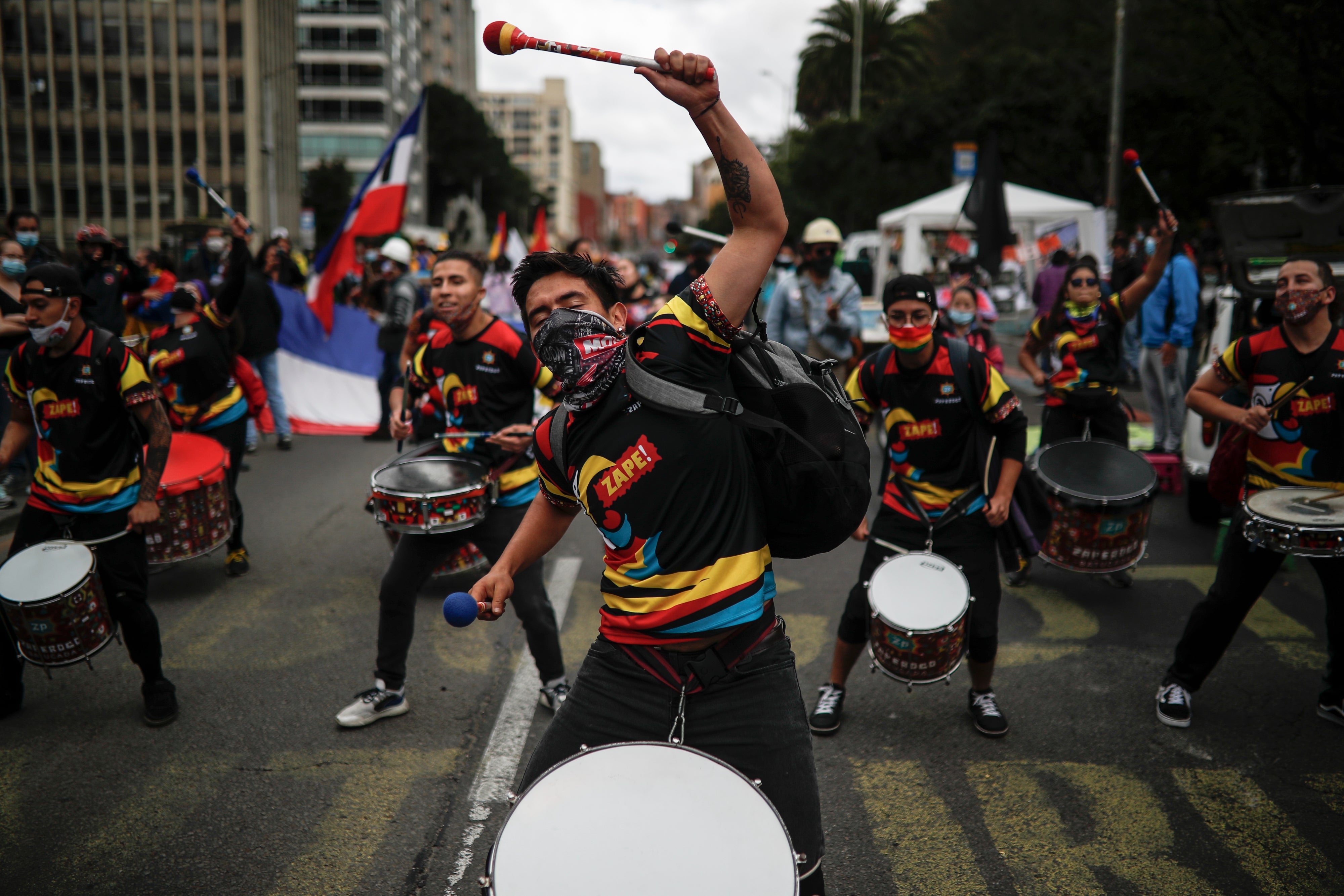More protests in Colombia as government unveils new tax plan
Protests against poverty and inequality have resumed in Colombia as President Ivan Duque presents a $4 billion tax plan aimed at helping the government pay for social programs and pandemic related-expenses

Your support helps us to tell the story
From reproductive rights to climate change to Big Tech, The Independent is on the ground when the story is developing. Whether it's investigating the financials of Elon Musk's pro-Trump PAC or producing our latest documentary, 'The A Word', which shines a light on the American women fighting for reproductive rights, we know how important it is to parse out the facts from the messaging.
At such a critical moment in US history, we need reporters on the ground. Your donation allows us to keep sending journalists to speak to both sides of the story.
The Independent is trusted by Americans across the entire political spectrum. And unlike many other quality news outlets, we choose not to lock Americans out of our reporting and analysis with paywalls. We believe quality journalism should be available to everyone, paid for by those who can afford it.
Your support makes all the difference.Protests against poverty and inequality resumed in Colombia on Tuesday as President Ivan Duque presented a $4 billion tax plan aimed at helping the government pay for social programs and pandemic-related expenses.
Thousands joined in marches in Colombia’s main cities while Duque outlined to contress his government’s achievements and presented a tax plan for financing subsidies to low income families that have been out of work during the pandemic.
The new plan is smaller than a $6.3 billion package that was presented in April and set off huge protests across Colombia, in which dozens of people were killed. The new proposal places a higher tax burden on companies’ earnings while discarding a previous proposal to impose sales taxes on basic items like coffee and salt.
Protesters said the new plan does not do enough to boost spending on education and job creation in Colombia, where the economy contracted 7% last year and pushed an additional 3 million people into poverty, according to the national statistics department.
“Protests continue because President Duque has not solved any of the problems faced by Colombian society,” said Francisco Maltes, president of the Central Union of Workers, one of the groups that has led anti-government demonstrations.
His union is part of a coalition of unions and student groups that plans to present congress with 10 proposals on addressing Colombia's social and economic crisis. These include dissolving the nation’s riot police as well as creating a basic income program that would make monthly payments of $260 to 10 million people.
The government’s subsidy program currently provides monthly payments of $40 to 3 million families that are struggling to get by in the country of 50 million inhabitants. The new tax plan seeks to maintain these payments, provide subsidies to companies that hire workers aged 18 to 28, and also finance university tuition for low and middle income students.
At Tuesday’s demonstrations, which were noticeably smaller than those in April and May, protesters also said they want justice for youths killed recently by police. Human Rights Watch says it has gathered evidence linking police to the slaying of 25 protesters during the recent wave of demonstrations, while local organizations say the number could be higher.
“Our country is in mourning” said Atala Ojeda, a pensioner who joined one of the marches in Bogota carrying a Colombian flag with a black ribbon. “Every month we are losing young people and social leaders.”